July 14, 2020
Austin Moore is an M.D./Ph.D. student in the Medical Scientist Training Program (MSTP) at UT Southwestern and previously held a Medical Research Fellowship from the Howard Hughes Medical Institute (HHMI). In the Zhu lab, Austin studies a protein complex known as the SWI/SNF complex. In the liver, this complex impacts processes like tissue regeneration and the development of diseases like non-alcoholic fatty liver disease (NAFLD) and liver cancer.
What are you researching?
My research focus is a chromatin remodeling complex known as SWI/SNF that is responsible for making DNA more or less accessible for gene transcription and can impact important processes like regeneration, tissue homeostasis, and cancer development. Part of what makes the complex so interesting to study is that it has multiple subunits that can switch and rearrange, allowing for different configurations that can have separate functions between tissues or cell states. One such subunit is ARID1A, which we’ve shown previously to strongly impact liver regeneration and hepatocellular carcinoma – the most common form of liver cancer.
My first project in the lab studied ARID1A in the context of fatty liver disease, and we were able to show that loss of ARID1A changed the metabolic state of a type of liver cell known as hepatocytes and led to a buildup of fat that could not be adequately broken down. ARID1A also has a homologous protein, ARID1B, which can substitute for it within the SWI/SNF complex. Looking forward, the questions I would most like to answer are: how do ARID1A and ARID1B interact with one another? Do they compete with one another? Can one compensate for the loss of the other? How do changes in their relative levels alter the functionality of the entire complex? Since many aspects of this complex are mutated in human cancers, answering these questions could help guide pro-regenerative therapies as well as identify future targets for cancer therapeutics.
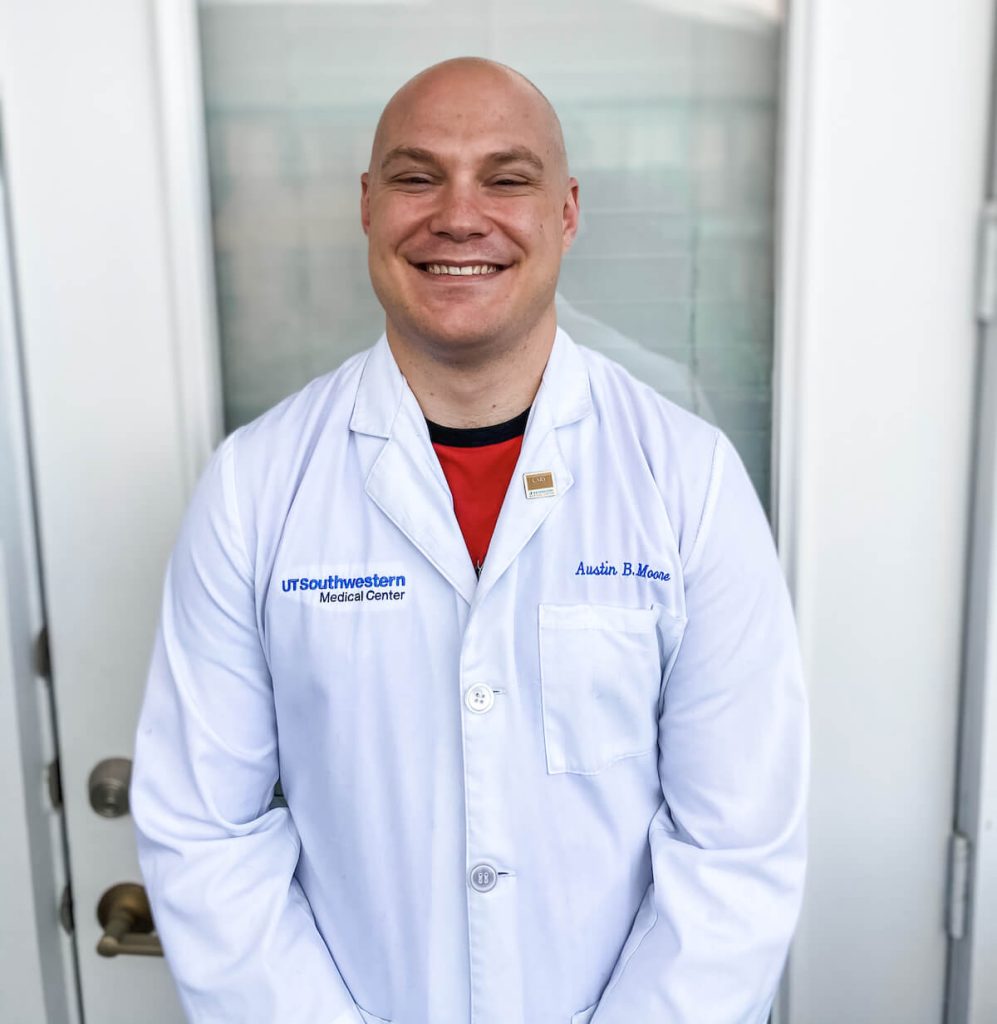
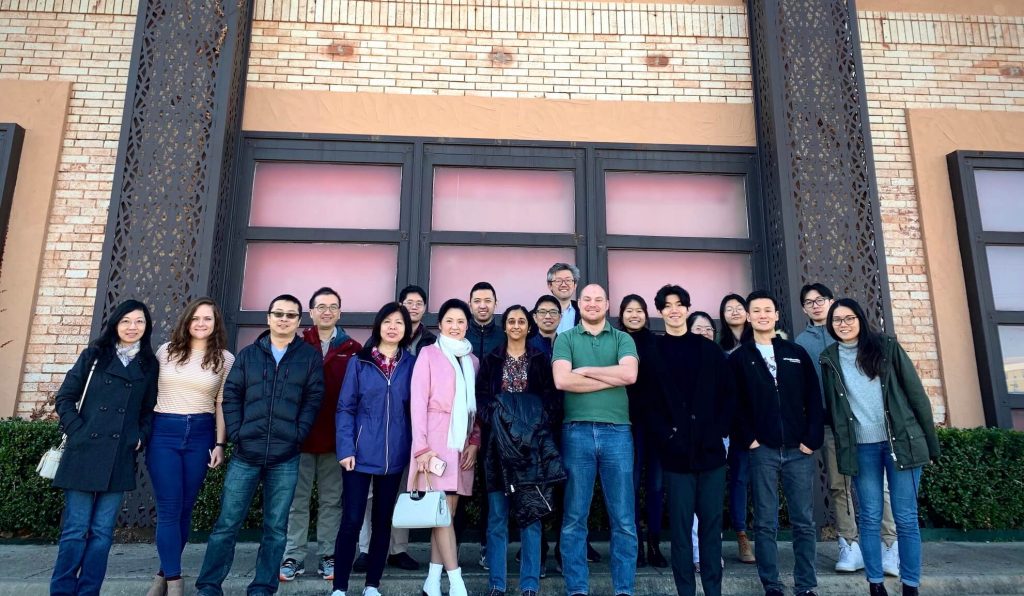
How did you end up in CRI?
After my third year of medical school, I wanted to take a year off to participate in research; my plan was to apply for the HHMI Medical Research Fellows Program. I had a friend (now fiancée!) in the neuroscience department who had heard a lecture from Hao Zhu and suggested I look into his lab. I reached out to Hao, and the rest is history. In fact, I enjoyed my time in his lab and in CRI so much that I elected to transfer into the MSTP program and complete my Ph.D., as well as my M.D.!
What is the hardest part of grad school?
I think the shift from the very regimented curriculum of medical school to the self-driven learning style of grad school was the hardest part for me. Your time is your own in grad school—the hours can be flexible, and once classes are finished, most of the research goes at the pace you’re willing to set. Having that autonomy and freedom is a wonderful thing, but it also means that you have to be your greatest motivator, teacher, and critic.
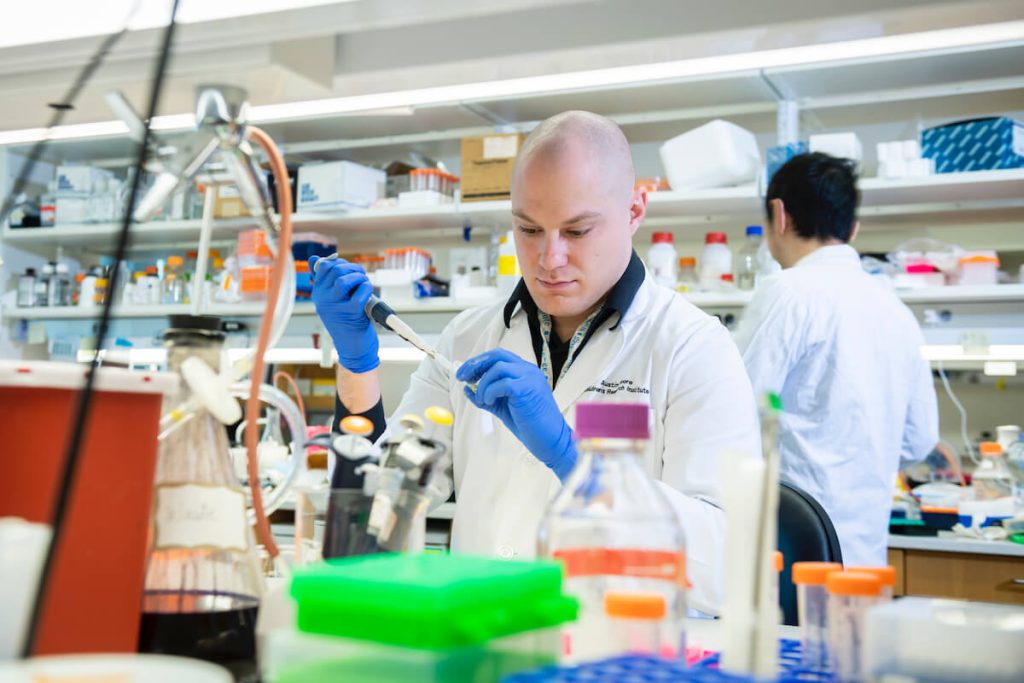
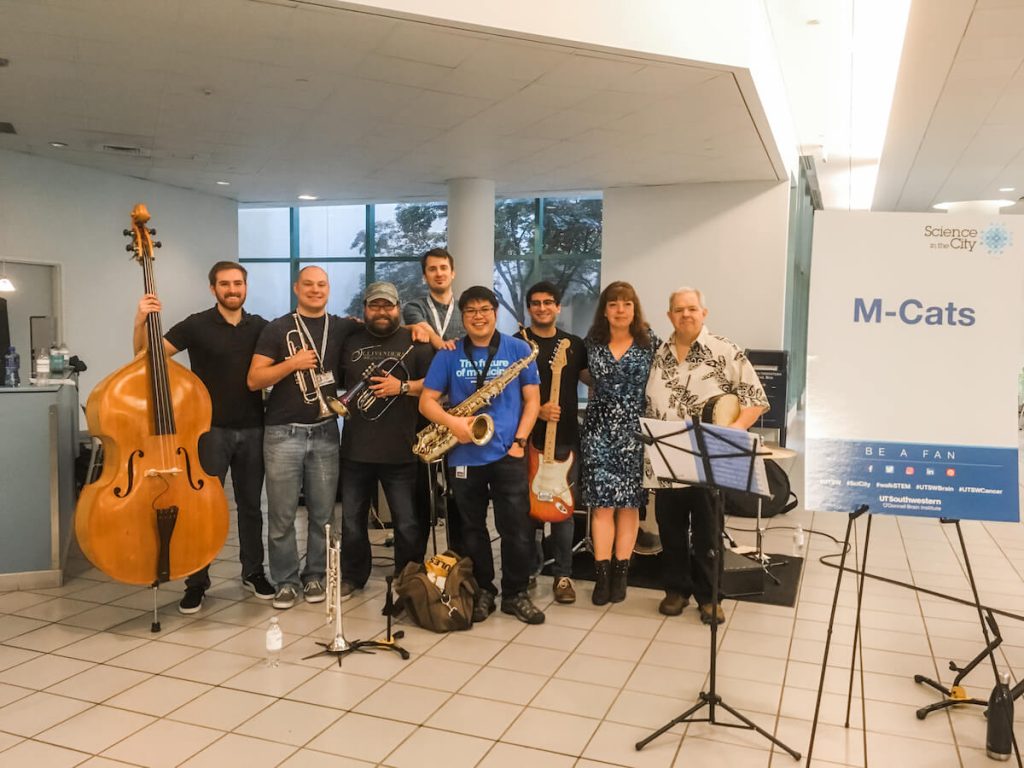
Do you have any hidden talents?
I love music, and I participate in all the musical groups I can on campus. Right now, that includes an a capella group known as the Lymph Notes and a jazz band that we call the M-Cats. I play the trumpet, the guitar, a little piano, and I also sing. It’s a great stress reliever!
Where do you see yourself in ten years?
I think by that time I may have actually finished the gauntlet of medical residency and fellowship! My goal is to become a pediatric oncologist, splitting my time between a research lab and clinical practice. I’ll also be married to my fiancée with a collection of dogs, cats, and children in quantities to be determined later.
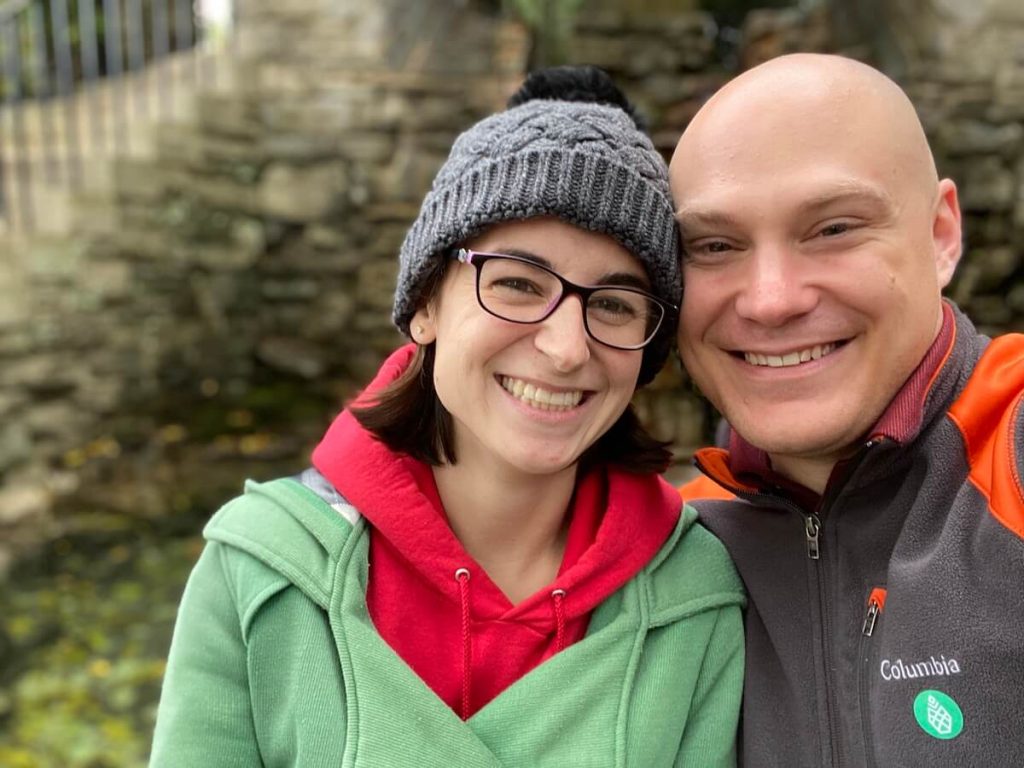
© 2025 Children’s Research Institute Dallas Texas | Privacy | Site Policies